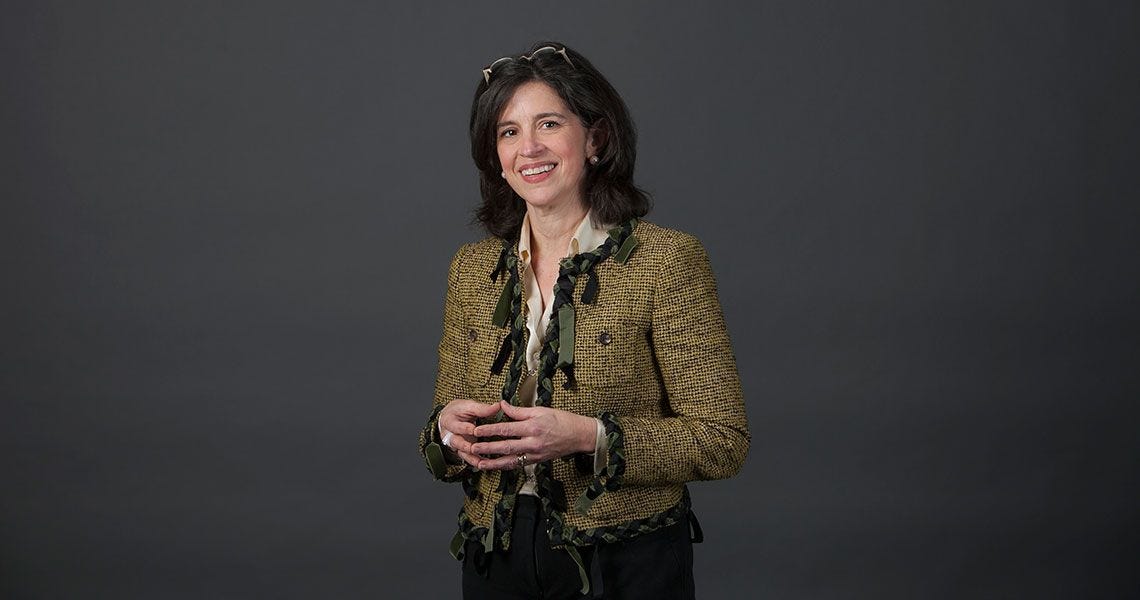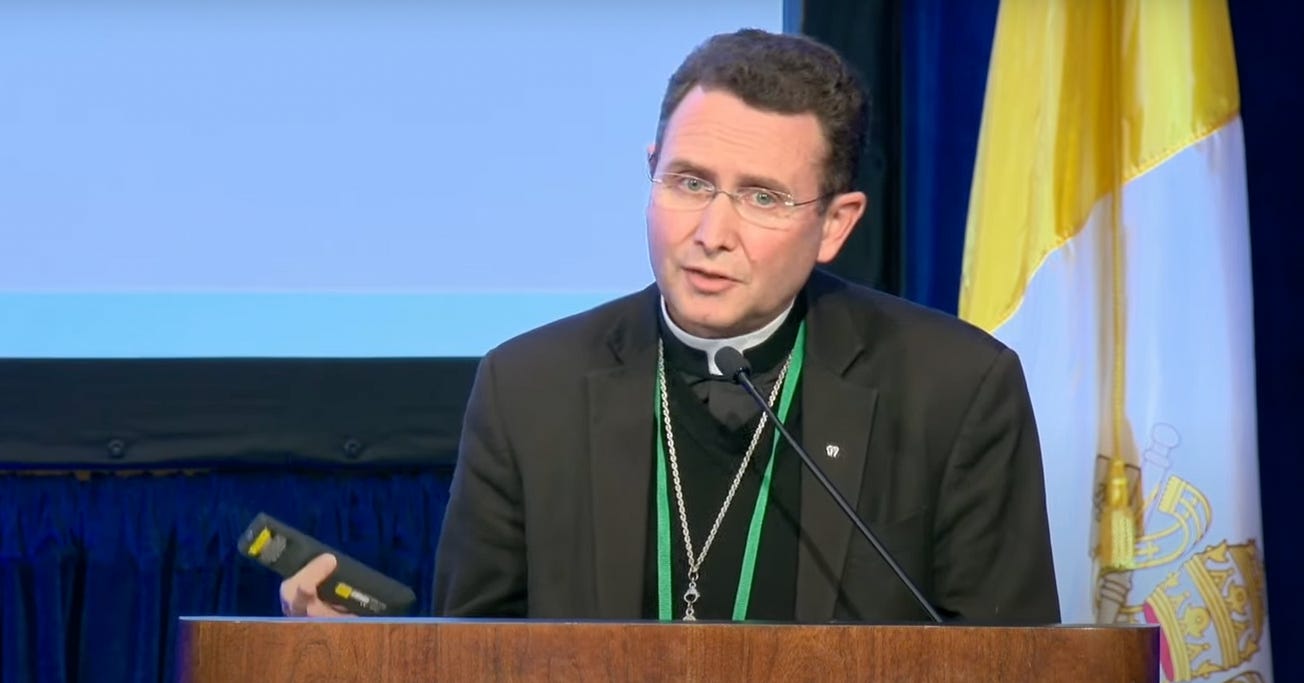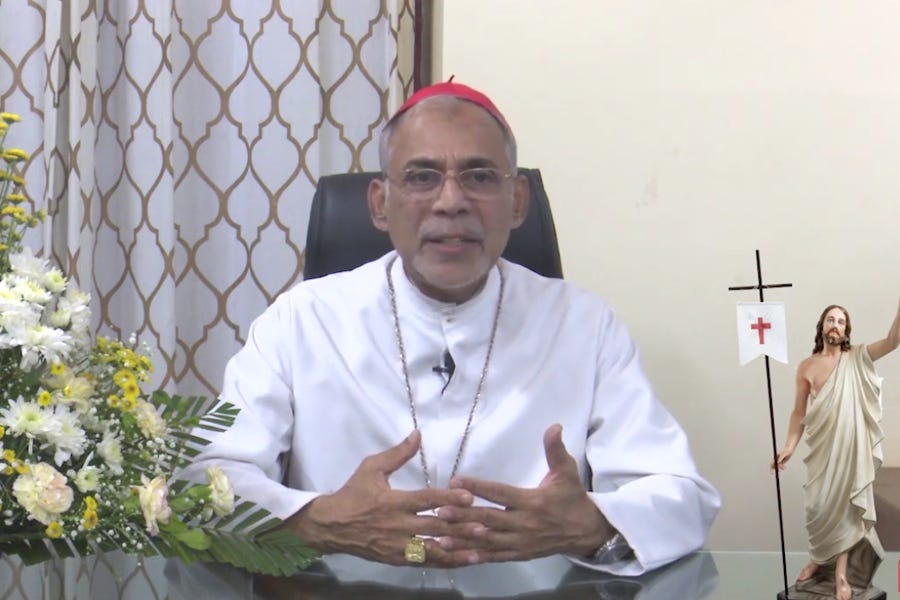
When Bill Clinton signed the Religious Freedom Restoration Act in 1993, it was hardly considered controversial. The legislation had broad bipartisan support, passing unanimously in the House and nearly unanimously in the Senate.
Since then, however, there have been multiple calls to repeal RFRA, as the law is known. Opinions on the issues have become much more divided, with critics of the law saying it is used to justify discrimination based on sexual orientation and gender identity.
Has the American notion of religious freedom changed in recent decades? And if so, why?
Part of the shift in how religious liberty is viewed is due to conflicts arising from changes in American sexual ethics, argues Helen Alvaré, author of a new book entitled Religious Freedom after the Sexual Revolution: A Catholic Guide.
And, she says, advocates of religious liberty must have a robust understanding of what it really means to be a religious institution if they hope to be successful not only in courts of law but in the court of public opinion.
Alvaré is Associate Dean for Academic Affairs and Robert A. Levy Endowed Chair in Law and Liberty at George Mason University’s Antonin Scalia Law School. She specializes in family law, law and religion, and property law. She is also a member of the Vatican Dicastery of Laity, Family and Life.
This week, Charles Camosy spoke with Alvaré about the legal and cultural clashes between religious freedom and the values of the sexual revolution, and how an understanding of religious identity may be to key to defending religious liberty in the United States today.
So many disagreements can be made into actual debates--rather than folks talking past each other--by clearly defining terms. So let's start there. To what does "the sexual revolution" refer, precisely?
It refers to several phenomena. Most basically, the tearing apart of the goods of marriage so that a sexual relationship is separated from fidelity and permanence and from a welcoming of children into the relationship.
These separations are visible in different behaviors and trends, all of which have accelerated in the last 60-some years (though my historically-minded friends tell me to look back really at the last 100, or even further back to human beings’ solidifying inclinations to think of themselves as self-made women and men).
These behaviors and trends include nonmarital sex, cohabitation, divorce, abortion, same-sex relationships and the rejection of one’s given biological sex.
Another aspect of “the revolution” is the severing of the structures and experiences of sex, marriage and parenting from their transcendent origins and meanings. We are told in Scripture that these aspects of our human lives point to the identity of God as a communion of permanent, fruitful love, to how He loves us, and to how we are to love Him and one another – as a parent loves a child and as spouses love one another.
Vanishingly few people reflect on these truths deeply, and on their implications for our sexual and family lives. Instead we easily get caught up in the strictly worldly experiences of sex and family relationships and forget to ask what they point to.
So many folks tend to criticize a traditional Catholic ethic as being obsessed with so-called pelvic issues. But my very strong sense is that it was this revolution that drew our culture's attention to such issues in a deeply unhealthy and obsessive way and intentionally put a traditional Catholic ethic on the defensive. What's your view?
We are living in a period of history when the West is not only primarily obsessed with the human being (as distinguished from God), but with his and her sexual being. I don’t think anyone has better traced the trajectory than Professor Carl Trueman in The Rise and Triumph of the Modern Self, where he describes the West’s moves: from thinking a great deal about God and the community, to thinking mostly about the self; then to thinking about one’s sexual expression as central to identity; and then to politicizing the sexual.
From its inception, Christianity was known not only for its care for the vulnerable and outcast, but for its application of this same love ethic to the family and to sexual matters. Thus Christianity’s insistence upon treating family members with the same Good Samaritan care with which we are called to treat strangers, and its insistence upon respect for God’s creative design of our bodies and relationships. This meant and still means respecting the gift of our sexuality, and avoiding nonmarital sex, divorce, abortion and same-sex relations.
Given Christianity’s strong commitments in this realm, it was inevitable that a world increasingly rejecting deference to God and to “the other,” in favor of a fractured and individualistic sexual ethic, would come to resent Catholic commitments in this arena.
Why did you want to write a book about specifically about religious freedom after the sexual revolution? How does this respond to the signs of the times?
So many of the lawsuits in the United States today that challenge religious institutions’ religious freedom involve demands that religious institutions comply with the state’s new sexual orthodoxy: the separation of sex from biology, and the separation of sex from marriage from children.
They involve, for example, requirements that Catholic institutions provide contraception or abortion or transgender services or affirmation. They insist that these institutions are discriminating on the basis of sex or sexual orientation when they insist that employees not openly reject the teachings of the faith as a condition of employment. Many Catholic and other religious institutions are the targets of these kinds of laws and lawsuits, whether schools, hospitals or social services.
Increasingly, however, I observed that while some Catholic institutions were winning such lawsuits, often they were failing to proffer a robust argument for why they sought religious freedom. Why do they want to maintain their standards concerning sexual expression? Too often they simply asserted that “we have a rule we must obey,” or “the bishop made me do it.” Sometimes they tried to qualify an employee as a “minister” to take advantage of religious freedom protections for ministers by making thin statements like “the organist picks the songs for the children’s liturgy.” As a result of such defenses, the public’s respect for religious freedom and for our sexual expression teachings declined together. We risked diminishing affection for both in courts of law and in courts of public opinion.
I also observed that Catholic institutions were not explaining to the public why a hospital or school or social service felt an obligation to observe the most important commandment – to love God and one another as He has loved us –in both the sexual expression and the social charitable arenas. Too often, outside observers insist essentially that these organizations “shut up and sing,” by which I mean, that they simply provide their services in the same way a secular institution would, and shut up about the family stuff.
I wanted to help Catholic institutions do better: to express their natures as witnesses to the living Christ to one another and to the world, and as communities providing a glimpse of the kingdom. I wanted their employees and leaders and outside observers, too, to understand that Christian love is one and indivisible. That the love these institutions show their clients, patients, employees and students is the same Good Samaritan love that insists, for example, that we remain faithful to a spouse, avoid sexually using others, and respect children’s lives, including their need for the faithful love and care of their mothers and fathers.
I also wanted to expose Catholic institutions to the body of empirical evidence demonstrating how important religiously faithful employees are to the mission. Everyone knows “personnel is policy,” but somehow both Catholic institutions and courts of law were too often overlooking this crucial truth.
What do you make of the recent activity of the leadership of the Pontifical Academy for Life surrounding these issues?
Frankly, I am confused by their priorities at the moment. The world is more and more empirically reaching the conclusion that the Church’s norms are productive of equality, freedom, physical health, strong relationships, and are a powerful means for closing the gap between richer and poorer populations, considering the family suffering disproportionately experienced by the latter. More on this in a moment (below).
Young people in particular are suffering from a deficit of commitment, a lack of deep understanding of the meaning of sex, fatherlessness, separation from their family of origin, invitations to question their biological sex, and the negative effects of cohabitation, abortion and divorce. The powers-that-be are caricaturing the Church’s teachings as hurtful, anti-women, and anti-LGBTQ, and have launched 1000 lawsuits to muzzle its witness.
Why wouldn’t an institution with millennia of experience and wisdom in this arena spend its productive time trying to talk about its teachings in a way most suited to the situation of 21st century needs and lives? Instead of airing 50-year-old arguments that the world has experimented with for just as long, and found wanting and worse?
Do you see a backlash forming? Hopefully this isn't wishful thinking on my part, but here I'm thinking in particular of Christine Emba's book and other thinkers in that orbit.
Yes, but.
Yes, I see many books and articles from people who followed the sexual revolution’s prescriptions and suffered. They are now telling their tales in order to caution future generations. Yes, empirical evidence from a wide array of scholars on both the left and the right is coalescing around the conclusion that separating sex from marriage from children is not only not all it was cracked up to be, but particularly destructive for the most vulnerable – for children, for the poor, for those already disadvantaged due to their minority or immigration status. It is better known today than ever in fact, that the latter vulnerable groups suffer less marriage, and more divorce, abortion, cohabitation, sexually transmitted infections, and fatherlessness.
But when one compares the power and reach of these voices with the strength of voices of the media and the entertainment industry and the academy, and with the federal and some state governments’ bully pulpits today, it’s not even close. The latter are overwhelmingly in support of the worst excesses of the sexual revolution and have the money, the legal authority, the channels and often the academic degrees to make dissidents look and feel powerless, irrational and mean.
All of this said, however, I never forget the power of truth, the power of small groups with integrity and lives that attract observers, and of course the power of our God who loves us and wants us to know this love, and to share it with one another. No one thought that voices supporting sexual integrity, and marital and parenting commitment would even be alive today, but they are, and better than that too. They continue to inspire curiosity and conversion because of their intrinsic power.




